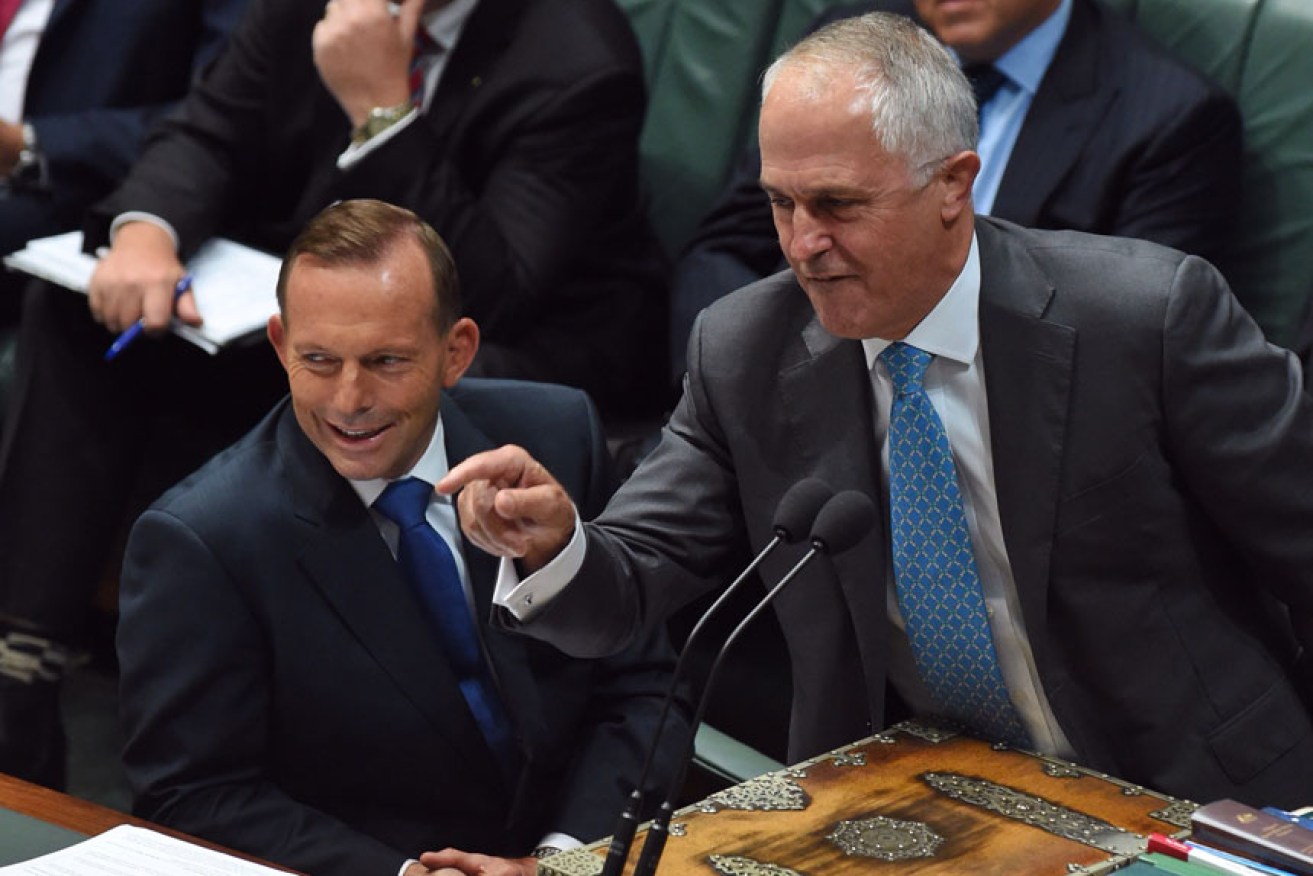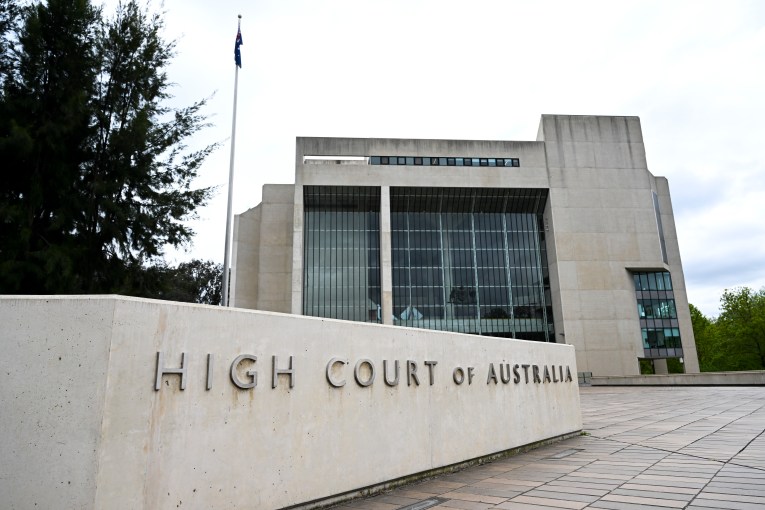Danger lurks ahead for superstar PMs in waiting


Social media was aglow on Monday night with lefty love for Communications Minister Malcolm Turnbull, dubbed by many as Australia’s Prime Minister in waiting.
According to the next day’s press, Mr Turnbull delivered a bravura performance on ABC’s Q&A program that night, marred only by a stumble on the question of children in detention. His direct plea to the Indonesian government to spare the lives of the two Bali Nine prisoners soon to be executed for drug trafficking was considered to be particularly compelling.
In fact, if one is to believe the growing cohort of Turnbull supporters, the man is a veritable composite of Al Gore, Gregory Peck and the Dalai Lama.
• Paul Bongiorno: PM’s strategy – hold onto power, no matter the cost
• Labor to review Shorten-Albanese leadership ballot
So it’s hardly surprising Mr Turnbull has such an ardent fan base. Since losing the Liberal leadership to Tony Abbott in 2009, he’s become a fixture on the Q&A program, using it and social media platforms such as Twitter and Facebook to court and recruit supporters. He even has his own mobile phone app.
If Mr Turnbull’s attempt to secure the Liberal leadership by popular demand is vaguely familiar, that’s because yet another popular prime ministerial aspirant pioneered the tactic.

Well, that didn’t go so well, did it? Former PM Kevin Rudd. Photo: Getty
Before becoming Opposition Leader, Labor’s Kevin Rudd built a vast stronghold of supporters in the broader Australian community, predominantly through a regular spot on commercial breakfast television. He later strengthened that support base with a seeming omnipresence on Twitter. So even though some within his own party actively disliked Kevin from Queensland, they begrudgingly made him leader because of his broad electoral appeal.
Similarly, Malcolm from Point Piper faces strong opposition from within his own party, and if he is made Liberal leader it will also be because his detractors have conceded that tapping into his popular support is the only way to win the next election.

All smiles: Malcolm Turnbull on the set of Q&A on Monday night. Photo: Screenshot
If that happens, it will be important for Prime Minister Turnbull to learn the lessons of Prime Minister Rudd – particularly the perils of being a popular politician.
This is because popularity comes with high expectations, and these can come back to bite when they are not met, often with ugly outcomes.
It’s all very well to promise the world when one isn’t prime minister but, as PM Rudd quickly learned, it’s much harder to deliver on those commitments once one has the keys to the Lodge.

Will Malcolm Turnbull eventually be sitting in Tony Abbott’s seat? Photo: AAP
Climate action was one of the policies on which Opposition Leader Rudd differentiated himself from then-PM John Howard. But after ratifying the Kyoto Protocol, PM Rudd found himself stymied on the international stage by the failed Copenhagen summit, and at home by an obstinate Senate.
He then made what was the ultimate career-limiting move by squibbing on the “great moral challenge of our generation” and postponing any further efforts to establish an emissions trading scheme.
Having shattered one of the public’s most symbolic expectations of him, to make Australia a leader in climate action, PM Rudd and his approval rating unsurprisingly spiraled downwards from there. The rest, as they say, is history.
The potential path to glory is similarly strewn with hazards for Mr Turnbull, if he were ever to become prime minister. In the four years since his removal from the Liberal leadership, the putative future PM has created a veritable truckload of voter expectations, ranging from a return to effective climate action, support for same-sex marriage, and perhaps even another run at Australia becoming a republic.
A new PM Turnbull would be constrained, however, in implementing that progressive wish-list. He will have to negotiate any proposed government legislation through a newly empowered party room, which will include the hardliners who’ll resist anything that appears vaguely leftist.
And then he will have to negotiate all over again with Labor, the Greens or the crossbench in the Senate.
Impasses and failures are bound to happen, so PM Turnbull should come prepared for what to do next when he doesn’t live up to his supporters’ high expectations.
If @TurnbullMalcolm doesn’t have more than 51 votes in the Liberal Party room after that performance on #qanda, he never will. Very strong.
— Stephen Mayne (@MayneReport) February 16, 2015
One other potential pitfall for a future PM Turnbull is that he’s an economic dry, which is a quality he’s mostly kept hidden while unofficially campaigning for the top job.
The unavoidable revelation of this fact may come as a nasty surprise to the Turnbull fan base, and land the PM with accusations of having shattered an expectation that he didn’t even create.
Most politicians are wont to mutter that popularity isn’t everything and they’d rather just be respected. In reality, that is a load of tosh. The beaming visage of Malcolm Turnbull on our screens on Monday night reinforces just how powerful – and addictive – political popularity can be.
Mr Turnbull would do well, however, to remember just how quickly popularity can be reversed.
Former Prime Minister Rudd was once Australia’s most popular PM ever, but once he shattered the illusions of his adoring fans he was swiftly and unceremoniously pulled down from that pedestal.
The same fate could await PM Turnbull, if he doesn’t learn to manage his progressive fans’ inflated expectations.
Paula Matthewson was media adviser to John Howard in the early 1990s and then worked for almost 25 years in communication, political and industry advocacy roles. She is now a freelance writer and communications strategist. Paula has been tweeting and blogging about politics, the media and social media since 2009 under the pen name @Drag0nista.








